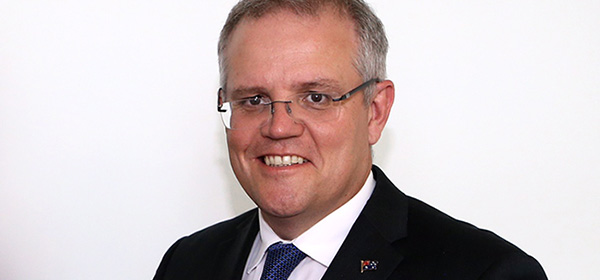Just how the economy is faring is set to be revealed tomorrow when Treasurer Scott Morrison delivers his Mid Year Economic and Fiscal Outlook (MYEFO) and we may not like what we hear.
Mr Morrison clearly indicated yesterday that all spending measures announced since the Federal Budget in May will need to be offset by savings. In the lead up to the MYEFO, Deloitte Access Economics calculated that the extra spending since the May budget totalled $5 billion over four years. The impact on revenue due to stagnant wage growth and the sharp drop in commodity prices will make the job all the more difficult.
The extra spending, which includes the Prime Minister’s $1.1 billion innovation strategy and the cost of resettling 12,000 refugees, estimated at $700 million, is predicted to cost the Budget $1.74 billion in 2015-16 and $1.56 billion in 2016-17. Figures that have not escaped Mr Morrison’s notice, “The budget rules state that any new spending must be fully offset,” he said. “There have been a series of measures since the budget that require the offset rule to be applied such as the commitment to accept 12,000 refugee and humanitarian entrants, the reversal of the bank deposits tax as well as additional funding for Roads to Recovery”.
With economists predicting that the Treasurer will announce a worsening budget position, with the deficit between $33 billion and $39 billion, the message at the Council of Australian Governments (COAG) on Friday was clear. A joint communication from the Federal Government and COAG warned of “emerging budgetary pressures across all levels of government, particularly in the health sector”.
Where the savings will be found remains to be seen but Mr Morrison assured it would not be through additional taxes, “The government will continue to restore the budget by controlling expenditure and supporting policies that grow the economy. The budget will not be restored by increasing the overall tax burden on Australians.”
Shadow Treasurer Chris Bowen challenged Mr Morrison’s position that the Government was spending too much, rather than failing to secure revenue. “For the Treasurer to claim that he can return the budget to balance without dealing with revenue is just plain wrong,” Mr Bowen said.
Read more at SMH.com.au
Opinion: Is Malcolm Turnbull’s honeymoon over?
So, our economy has the same problem that a lot of us do – spending more than we earn – and we’re about to find out the ramifications of such splurging.
As Prime Minister Malcolm Turnbull has ridden the wave of popularity, and rightly so many would argue. He has addressed many of the issues his predecessor Tony Abbott simply swept under the carpet, only this weekend lifting the ban on the Clean Energy Finance Corporation (CEFC) investment in wind power.
For a while we could pretend everything was rosie, but how quickly the political landscape changes. The long Christmas Parliamentary break possibly came as a blessed relief for Mr Turnbull as it meant he didn’t have to deal with the tricky case of Mal Brough, who has again found himself embroiled in the Peter Slipper saga that just won’t go away.
The signing of the climate deal in Paris not only means additional costs for Australia to meet targets and cover its contribution to future funds, but it will also bring back into the spotlight the controversial Adani mine deal, which it is estimated will produce more emissions than Bangladesh.
And let’s not forget the curly question of GST – will it be raised or won’t it? While many believe that it’s a ‘when and how’ question rather than ‘if’, it could be the policy that makes or breaks a government in a Federal Election year.
Often the Mid Year Economic and Fiscal Outlook (MYEFO) is considered a necessary evil, perhaps even something of a damp squib. This year, however, in his first big gig, Treasurer Scott Morrison will have to burst the bubble of optimism that has cushioned Mr Turnbull over the last three months. Mr Morrison, the man given the toughest jobs in Australian politics due to his unwavering commitment to what he believes is right, may just be facing his most difficult year yet in his political career – trying to balance the books and the expectations of a nation.
So, who will pay the price for spending, on a grand scale, more than we earn? I think it could be you and me.
Do you think the MYEFO will be all bad news? Or do you think that Mr Morrison has a handle on the economy? What measures do you expect to see to redress the imbalance between revenue and expenditure? Do you think Malcolm Turnbull is in for a bumpy ride, or will he simply roll with the punches and continue with his vision for the country?

